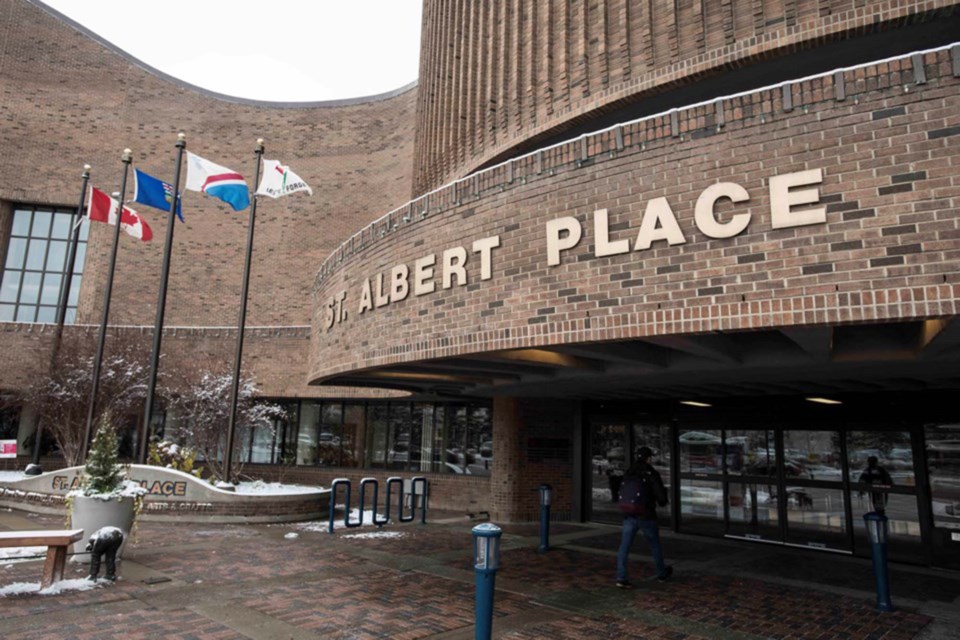The city has had some difficulty engaging St. Albert residents online this summer.
Recently, the city planned a set of two events looking to crowdsource revenue-generation ideas from residents as part of their Planning Forward series. The first event, scheduled for July 28, was cancelled due to low registration. The second — held Aug. 5 — was attended by two residents intermittently. Coun. Natalie Joly was also in attendance.
Though Joly declined a request for an interview with The Gazette, she relayed over text that earlier events she’d gone to were “very well attended.”
Pierre Rocque, community relations advisor for St. Albert, said low attendance at the city’s most recent events could be a result of Zoom fatigue.
“I think people are just tired of looking at their screens,” Rocque said. “The middle of summer is not ideal for people to sit on a computer and watch a presentation, especially on a nice night in August.”
He said despite lower levels of engagement that might accompany the summer, the city still felt it was important to hold the events.
“With the reality of an election in the fall and our upcoming budget, resident engagement is very important,” Rocque said.
According to Rocque, earlier events such as the city’s Green Environment Strategy: Community Brainstorm held in June, were better attended. He said the June 22 event was attended by 25 people.
Additionally, in May, Rocque said the city held six events where they engaged with clubs and associations in St. Albert, such as the Young Advisory Committee and Seniors Advisory Committee, and St. Albert Neighbourhood Connectors. He said these events had a total of 70 attendees altogether.
Low attendance this summer could also be due to lessening COVID-19 restrictions, Rocque argued.
“The world’s reopening,” Rocque said. “In an ideal situation, we would also be out and about. In the future, we’re going to be looking at every opportunity we can to do engagement, whether it’s pop-up open houses or information sessions.”
Similar to Rocque, Coun. Ken MacKay said he believes low registrations for the city’s latest events was related to “timing rather than a lack of interest.”
He added during the onset of the COVID-19 pandemic, the city saw additional engagement due to the accessibility of online events.
“Once people became used to virtual platforms, they actually engaged more,” MacKay said. “We saw that in several public hearings around new developments.”
He said now restrictions have been lifted, St. Albert residents might be spending time catching up on community connections.
“People are actually getting out and visiting again,” MacKay said. “They’re seeing family and friends they haven’t seen for a while.”
Mayor Cathy Heron said she believes residents “want to get involved and engaged,” but that summer is a difficult time. She noted typically the city is able to set up booths at the farmers' market to engage people who are outside enjoying the weather.
“In-person events might have attracted more people, but we’re still in a transitional time,” Heron said. “People are still a bit hesitant with COVID-19, but I’m predicting an increase in public engagement going into the future.”
Heron noted, for the city, hybrid events — events offering a mix of online and in-person attendance — will carry forward.
“Even on Monday at our council meeting, residents could participate virtually in the public hearing, which makes it easy,” Heron said.
Councillors Sheena Hughes, Ray Watkins, Wes Brodhead, and Jacquie Hansen did not respond to The Gazette's request for an interview by time of publication.
Rocque said in the future, the city will be looking at developing hybrid models that could incorporate online and in-person engagement.
“It's a matter of finding ways to actually get people to provide feedback in both directions, whether it's positive or negative, so that we can hear from a variety of people,” Rocque said.
“We're trying to reach people who we don't typically hear from, so it’s really a matter of finding where those underserved communities are."




